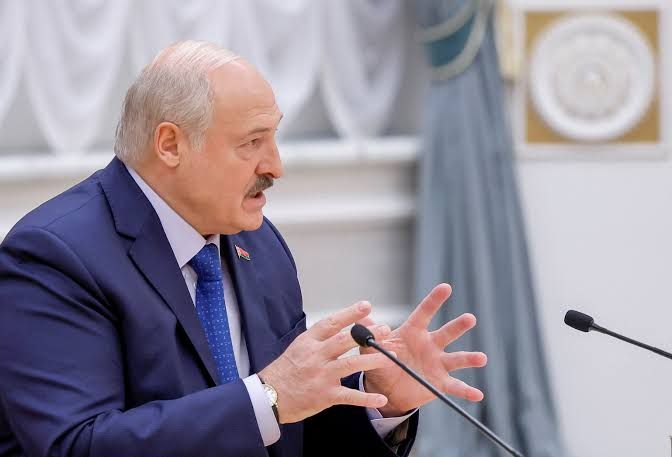Belarus Signals Willingness to Use Nuclear Weapons Amid Rising Tensions
In the face of escalating tensions at its borders with NATO countries, Belarus President Alexander Lukashenko has recently revealed that the nation would not hesitate to use nuclear weapons if subjected to "aggression" by foreign forces. This declaration comes in light of Belarus's deepening alliance with

In the face of escalating tensions at its borders with NATO countries, Belarus President Alexander Lukashenko has recently revealed that the nation would not hesitate to use nuclear weapons if subjected to "aggression" by foreign forces. This declaration comes in light of Belarus's deepening alliance with Russia and its increased involvement in the Ukraine conflict.
Minsk, the capital of Belarus, has been instrumental in supporting Russia's controversial incursions into Ukraine, having served as a launch pad for Moscow's invasion in early 2022. In recent months, the increasing number of joint military drills between Russia and Belarus has ignited fears that Belarusian troops might align with Russian forces in the continuing Ukrainian conflict.
Adding to the nuclear equation, reports emerged in June suggesting that Russian nuclear warheads had been dispatched to Belarus for "deterrence" purposes, a move confirmed by Russian President Vladimir Putin. Despite these claims, US and Western officials remain tight-lipped, neither confirming nor denying such weapon transfers. Nonetheless, high-ranking members of the US Defense Intelligence Agency (DIA) indicated their inclination to believe Putin's assertions.
In a recent conversation with Belta, the state news agency, Lukashenko emphasized Belarus's unwillingness to participate in the war unless provoked by Ukrainian forces. However, he reinforced the nation's commitment to Russia, stating, "We will keep helping Russia, they are our ally." Lukashenko further warned that any provocation, particularly from neighboring NATO nations, would be met with an immediate and decisive response, including the possible use of nuclear arms.
The nature and quantity of the nuclear weapons in Belarus remain ambiguous, but Lukashenko stated that they were tactical rather than strategic. This implies a readiness to employ them promptly should aggression ensue. However, the DIA believes that Belarus might not have direct control over these weapons, suggesting Russian oversight instead.
These alarming declarations arise amid a tumultuous European security climate. Recent reports have highlighted the movement of Russian Wagner mercenary troops near the land strip dividing Poland and Lithuania, seemingly in a bid to intensify pressure on both NATO and European Union constituents. Such moves have prompted Poland to bolster its border defenses and arrest suspected Russian spies.
Furthermore, the region is also grappling with migratory challenges, with Belarus previously trying to use the migration trend as a strategic advantage, driving thousands of Middle Eastern migrants towards the Polish and Lithuanian borders in 2021.
Recent moves by Lithuania to suspend some of its border operations with Belarus have been sharply criticized by Minsk. In a backdrop of heightened tensions, Lukashenko denies the claims that the recent Wagner rebellion weakened Putin, calling such assumptions baseless. He underscores Putin's strategic prowess and resilience, indicating that removing him from power is unlikely.
In summary, the European security landscape is undergoing significant upheaval, with Belarus, under Lukashenko's leadership, making clear its intention to safeguard its interests and those of its ally, Russia, at any cost.




